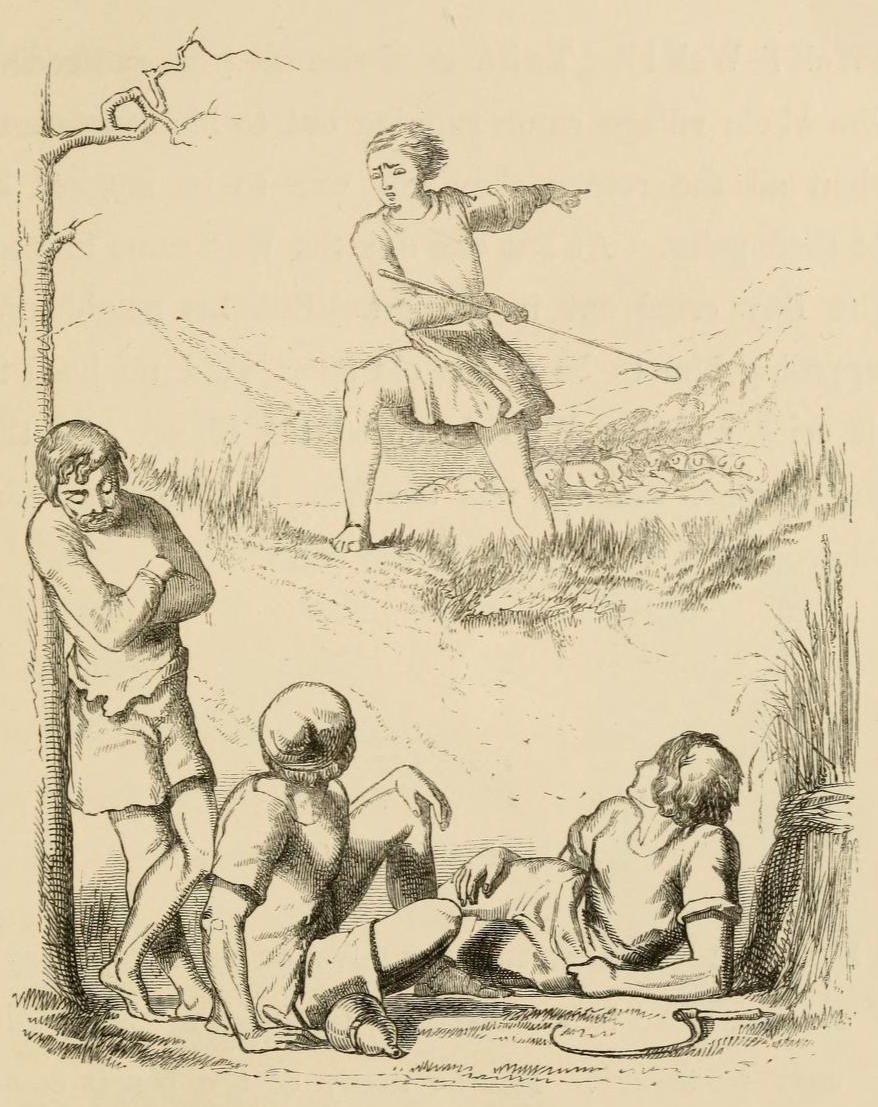1. πιστεύω ~ πιστεύσω ~ ἐπίστευσα (verb): believe, trust
2. μισέω ~ μίσομαι ~ ἐμισήθην (verb): hate
3. ἐλαύνω ~ ἐλάω ~ ἤλασα (verb): drive, set in motion
4. συμμείγνυμι ~ συμμείξω ~ συνέμειξα (verb): mix
5. ἄγω ~ ἄξω ~ ἤγαγον (verb): lead, bring
Ἀλώπηξ τὸν βοῦν ἐλαύνει.
Here are the proverbs and sayings:
Ὁ ψεύστης οὐ πιστεύεται.
Μισῶ μνήμονα συμπότην.
Οὔποθ' ὕδωρ καὶ πῦρ συμμείξεται.
Ἄγει δὲ πρὸς φῶς τὴν ἀλήθειαν χρόνος.
Plus some commentary:

Ὁ ψεύστης οὐ πιστεύεται.
The liar is not believed.
This saying is nicely illustrated by the famous Aesop's fable of The Boy Who Cried Wolf; the liar is not believed even when he is telling the truth. The noun ψεύστης is related to the verb ψεύδω which you saw in a previous blog post: Πολλὰ ψεύδονται ἀοιδοί.
Μισῶ μνήμονα συμπότην.
I hate a drinking companion with a memory.
The word συμπότης is a compound, συμ-πότης, a co-drinker — and yes, from this same root we get the English word symposium. The Greek συμπόσιον was a drinking party! A drinking-companion who remembers what is done and said at a symposium is dangerous because, as you learned in a previous post: Ἐν οἴνῳ ἀλήθεια. Meanwhile, from the Greek verb μισέω we get English words like misogyny and misanthrope.
Ἀλώπηξ τὸν βοῦν ἐλαύνει.
The fox is driving the ox.
This proverb is used for a situation where someone who is small but smart, like a fox, is able to control someone who is bigger and stronger, like an ox, but not as smart. Compare the English rhyming proverb, "Sleight masters might." According to another interpretation, however, the fox driving the ox refers to an absurd situation because the fox is not a farmer, and he has no business plowing a field with an ox. That's the thing about proverbs: they can mean quite different things based on the context in which they are actually used.
Οὔποθ' ὕδωρ καὶ πῦρ συμμείξεται.
Water and fire will never mix.
The word οὔποτε loses its final epsilon before the following vowel, and the final consonant aspirates before the rough breathing: οὔποθ' ὕδωρ. It is also a compound: οὔ-ποτε, not-ever, i.e. never. You can see the Greek word ὕδωρ in English hydrate and πῦρ in pyromaniac.
Ἄγει δὲ πρὸς φῶς τὴν ἀλήθειαν χρόνος.
Time brings the truth into the light.
You can see the Greek χρόνος in English words like chronometer and chronicle, and Greek φῶς appears in phosphorus. The stem of the φῶς is φωτ- which you see in English photograph, photon, etc. This is also one of the monostichs of Menander.
You can read the Aesop's fable about the lying shepherd here; this is an illustration by Tenniel; the shepherd is telling the truth now, but his fellow shepherds do not believe him.

Click here to subscribe/unsubscribe to the email list.
No comments:
Post a Comment